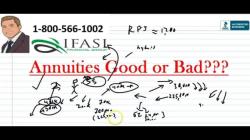Assess your finances
We all know we should be in control of our money, but for many people, the idea of sitting down to assess your finances feels daunting. We often put off looking closely at our bank accounts until we're facing a crisis, like unexpected debt, a sudden major expense, or the realization that we’re just not saving enough.
The truth is, understanding your financial situation isn't a punishment—it's the absolute foundation of successful personal finance management. You can't chart a course to a better financial future if you don't know your starting point. Proactive evaluation, rather than reactive panic, is the tool that helps you spot trouble early, maximize your savings, and confidently work toward long-term financial security.
This article promises to be your clear, step-by-step guide on how to review personal finances. You'll get practical financial assessment tips, learn about useful digital tools, and understand the crucial role professional guidance can play in transforming your financial life.
What Does It Mean To Assess Your Finances?
A financial assessment is a comprehensive, objective review of your entire monetary landscape. It’s the process of gathering all your financial data—your income, expenses, assets, debts, and future goals—and analyzing it to understand your true financial health.
Crucially, it’s not just about creating a budget, which focuses on future spending. Assessment is about gaining a complete, current financial snapshot. It answers the fundamental question: Where am I, financially, right now?
Understanding this snapshot has a massive impact on your life. A thorough financial assessment helps you:
Make Better Decisions: You can make informed choices about major purchases (like a car or home) because you know exactly how they’ll affect your cash flow.
Identify Waste: You can pinpoint hidden fees, unnecessary subscriptions, or overspending in specific categories that are quietly sabotaging your savings.
Optimize Savings and Investing: By identifying your free cash flow (what’s left after essential bills), you can allocate money strategically to high-interest savings or investment accounts, ensuring your money is working for you.
In short, financial assessment turns confusing numbers into a clear, actionable plan.
How Do I Start Assessing My Financial Situation?
Starting a financial assessment requires two things: access to your financial records and a commitment to radical honesty. You need to gather information from all sources, including bank accounts, credit card statements, investment platforms, and loan documents.
Here is a simple, four-step approach to get started:
1. Track All Income Sources
Start with what’s coming in. This should include all money deposited into your accounts each month, not just your main paycheck.
Primary Income: Your net monthly pay (after taxes, benefits, and retirement deductions).
Secondary Income: Income from side gigs, rental properties, freelance work, alimony, or government benefits.
Total Monthly Income: Add up all sources to get your consistent monthly inflow.
2. List Every Expense
This is often the most revealing step. Use the past 30 to 60 days of bank and credit card statements to capture everything, down to the last dollar. Categorize your expenses into fixed (rent, mortgage, loan payments) and variable (groceries, entertainment, gas).
Fixed Expenses: Rent/Mortgage, student loans, car payments, insurance premiums.
Variable Expenses: Food, utilities (which fluctuate), entertainment, clothing, and discretionary spending.
Debt Payments: All minimum payments on credit cards or loans.
Savings/Investments: Money automatically moved to savings, retirement, or brokerage accounts.
3. Review Debts and Obligations
Get specific about what you owe. For each debt, record the total balance, the interest rate (APR), and the minimum monthly payment. High-interest debt, like credit cards, should be the biggest focus, as it can be the biggest drag on your financial progress.
4. Calculate Your Net Worth
Your net worth is the ultimate measure of your financial health. It’s what you own (assets) minus what you owe (liabilities/debts).
Net Worth=Total Assets−Total LiabilitiesAssets: The cash value of everything you own—checking and savings accounts, retirement funds (401k, IRA), investment portfolios, real estate equity, and the value of your car.
Liabilities (Debts): Credit card balances, mortgages, personal loans, and student loans.
While calculating net worth might feel discouraging if the number is low (or even negative), remember that it’s a starting baseline. The goal isn't the number itself, but the act of taking an honest, accurate measure so you can begin improving it.
What Tools Can Help With Personal Finance Assessment?
Thankfully, personal finance management has become easier than ever, thanks to technology. Choosing the right tool depends entirely on your lifestyle and how "hands-on" you want to be.
Digital Tools: Budgeting Apps and Aggregators
Modern budgeting apps are the most effective way to assess your finances because they connect directly to your bank and credit card accounts, automatically pulling data and categorizing transactions.
| App Name | Key Feature | Best For |
| Quicken Simplifi | Great balance of ease-of-use and robust features; excellent at tracking spending. | People who want an affordable, all-around tool to see their entire financial picture at a glance. |
| YNAB (You Need A Budget) | Uses the “zero-based budgeting” method, giving every dollar a job before you spend it. | Dedicated budgeters who want a hands-on, proactive approach to controlling their money. |
| Monarch Money | Comprehensive platform that tracks goals, transactions, and investments, often featuring AI-driven tools. | Users seeking an extensive, feature-rich tool for advanced tracking and forecasting (though it is one of the pricier options). |
| NerdWallet | A popular free option that allows you to track cash flow, net worth, and credit score. | Beginners or those primarily focused on debt and credit score improvement who need a free resource. |
Traditional Methods: Spreadsheets and Notebooks
If you prefer to maintain maximum privacy or simply enjoy manually engaging with your numbers, traditional methods are highly effective.
Spreadsheets (Excel/Google Sheets): These offer maximum customization. You create the categories, the formulas, and the visuals.
Pro: Complete control, powerful calculation features, often free.
Con: Requires manual entry and setup; you have to do all the work to import data.
Notebooks and Manual Tracking: Writing down every expense as it happens forces a high level of awareness.
Pro: The physical act of recording reinforces financial habits and encourages mindfulness before spending.
Con: Easy to forget to record transactions, tedious, and no easy way to automatically calculate net worth or compare data year-over-year.
Why Is It Important To Regularly Assess Finances?
Think of your financial assessment like a check-up with a doctor. You wouldn't wait ten years for a medical check-up, and you shouldn't do that with your money, either.
Finances are not static; they are dynamic. Your income, expenses, and goals constantly shift with your life:
Life Stage Changes: Getting a new job, moving to a new city, getting married, having children, or facing a medical expense—all dramatically alter your cash flow and financial priorities. Regular assessment helps you pivot seamlessly.
Preventing "Lifestyle Creep": As your income increases, it’s easy for your spending to secretly increase along with it. This "lifestyle creep" prevents you from building wealth. Regular assessment helps identify and stop this trend before it gets out of control.
Achieving Long-Term Goals: Whether you want to save for a home down payment, fund a child’s education, or plan for early retirement, these goals require consistent progress monitoring. An assessment tells you if you are on track to meet your deadlines. It is the bridge that connects the present reality to your future aspirations.
A consistent review prevents overspending, builds your savings momentum, and turns seemingly impossible financial targets into manageable steps.
How Do Financial Advisors Assist in Assessing Finances?
While self-assessment is essential, there comes a time when you might need professional financial advisor guidance. A personal financial advisor’s primary role is to provide an objective, expert analysis of your complete financial situation.
The Role of a Financial Advisor
A good advisor doesn't just manage your investments; they act as a holistic financial partner:
Objective Analysis: They can see patterns and risks that you might overlook because you’re too emotionally attached to your spending habits or investment choices. They provide a clear-eyed view of your strengths and weaknesses.
Tailored Strategy Creation: They take the raw data from your assessment and turn it into specialized strategies for:
Debt Repayment: Structuring debt payoff plans (like the debt avalanche or snowball method).
Investment Optimization: Ensuring your investment portfolio is diversified, tax-efficient, and aligned with your risk tolerance and time horizon.
Tax and Estate Planning: Providing guidance on tax laws, retirement accounts, insurance, and estate plans to maximize your net worth.
Emotional Management: During market volatility or major life decisions, an advisor can help you manage the emotional urge to make impulsive, costly mistakes. They help you stick to your long-term plan.
When to Consult an Advisor
It may be time to seek financial advisor guidance if you are facing:
Major Life Transitions: Retirement planning, inheriting a large sum of money, selling a business, or planning for college tuition.
Complex Financial Situations: Managing stock options, navigating self-employment taxes, or holding large, complex investment portfolios.
A Lack of Confidence: If you feel overwhelmed, confused about where to invest, or simply need an expert to confirm your existing plan is sound.
FAQ Section
How often should I assess my finances?
While daily or weekly tracking (budgeting) is great for monitoring spending, a comprehensive financial assessment should be done at least quarterly or annually. An annual assessment allows you to review your net worth calculation, check your progress toward big goals, and make necessary adjustments for the upcoming year, especially before tax season.
Do I need a financial advisor to manage my money?
No, you don't need a financial advisor, especially if your financial life is relatively simple (steady income, manageable debt, basic retirement account). You can handle most fundamental personal finance management with budgeting apps and self-education. However, for complex investment, retirement, or estate planning, professional financial advisor guidance can be invaluable.
What’s the difference between financial assessment and budgeting?
Financial assessment is a look back at your current and past financial data to determine where you stand (your net worth, your income vs. expenses). Budgeting is a look forward—it's the plan you create based on your assessment to tell your money where to go next month. Assessment is the diagnosis; budgeting is the treatment plan.
Can financial assessment help with debt repayment?
Absolutely. By conducting a detailed financial assessment, you precisely identify two key things: 1) exactly how much high-interest debt you have, and 2) where you have "free cash flow" (surplus money) that can be directed toward paying off that debt faster. This clarity allows you to create an aggressive, data-driven debt repayment strategy.
Conclusion
Taking the time to assess your finances is the most powerful step you can take toward securing your financial future. It’s about more than just numbers; it’s about clarity, control, and peace of mind.
The key to effective personal finance management rests on three pillars: knowing where your money comes from, understanding exactly where it goes, and having a firm grasp on what you own versus what you owe.
Remember that financial assessment is not a one-time chore, but an ongoing process that evolves as your life does. Don't wait for a crisis to force you to look at your money. Take the first step today, whether it's downloading a top-rated budgeting app like Quicken Simplifi or YNAB, opening a spreadsheet, or contacting a financial advisor to get professional guidance.
Which part of your financial life—income, expenses, or debt—will you tackle first in your financial assessment?













FinancialFreedom_Seeker
on October 03, 2025This article is a perfect breakdown! The difference between **financial assessment** and budgeting finally clicked for me. I’m starting with the net worth calculation today—it’s time to face the music!
DebtSlayerJane
on October 03, 2025The advice on when to seek **financial advisor guidance** is so helpful. I'm facing a complex inheritance situation and realize now that an objective professional is exactly what I need. Thank you for clarifying their role!